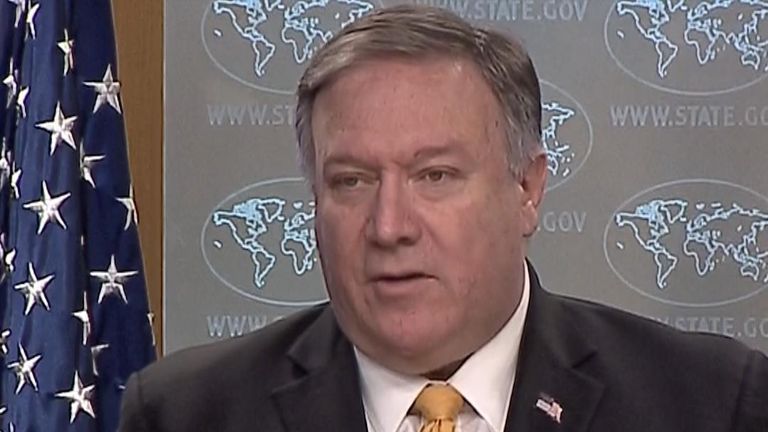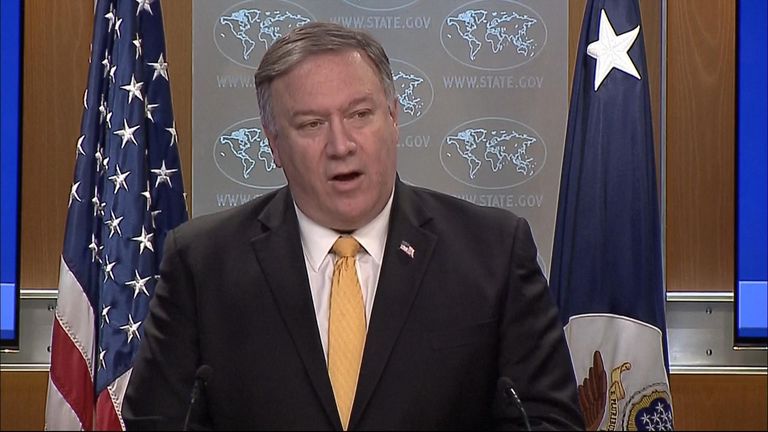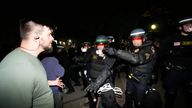US suspends Cold War nuclear weapons treaty with Russia
The 1987 deal, signed by Ronald Reagan and Mikhail Gorbachev, has been at the centre of arms control efforts since the Cold War.
Friday 1 February 2019 16:15, UK
The US will suspend a landmark Cold War-era nuclear arms control treaty with Russia, secretary of state Mike Pompeo has announced.
Mr Pompeo said he will suspend its compliance with the treaty on Saturday and the US could pull out formally in six months - but gave Russia a final chance to save the deal.
He said Russia was in breach of the treaty "to this day".
"Countries must be held accountable for their actions," he added.
The Intermediate-Range Nuclear Forces (INF) treaty was signed in 1987 and has been at the centre of superpower arms control since the Cold War.
NATO says it "fully supports" the US action, saying: "Allies regret that Russia, as part of its broader pattern of behaviour, continues to deny its INF Treaty violation, refuses to provide any credible response, and has taken no demonstrable steps toward returning to full and verifiable compliance."
Mr Pompeo said America had raised the issue more than 30 times and that Russia's violations put Americans and Europeans at risk.
He made the announcement a day before the deadline set by America for Russia to comply with the historic INF treaty.
The deal banned ground-launched missiles with a range of 500 to 5,500km (310 - 3,418m) and was a significant step in the wind down of the Cold War.
Western experts say the new Russian medium-range missile system is in breach of the treaty.
Mr Pompeo's announcement comes after 60 days of appeals for Moscow to back down.
He said that the US was prepared to discuss the matter with Russia, but added US President Donald Trump wants an agreement which can be verified.
In Russia, the decision had been expected.
"We all regret that in the coming days this decision will most likely be implemented," Kremlin spokesman Dmitry Peskov said ahead of Mr Pompeo's speech.
"A decision to move to break the treaty was made in Washington a long time ago."
The deal signed by then US president Ronald Reagan and Soviet leader Mikhail Gorbachev eased tensions between the two global powers.
This withdrawal will spark fears of history repeating itself and a new arms race.
EU diplomatic chief Federica Mogherini, speaking before Mr Pompeo's statement, said: "What we definitely don't want to see is our continent going back to being a battlefield or place where other superpowers confront themselves...
"This belongs to a faraway history."





